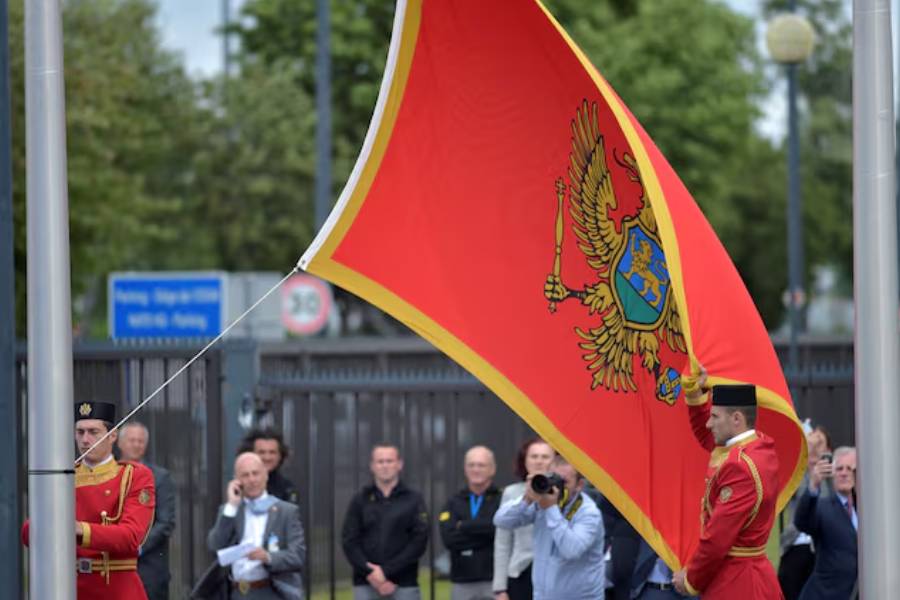
Published :
Updated :

The European Commission said on Tuesday that the EU could welcome new members as early as 2030 as it praised Montenegro, Albania, Ukraine and Moldova for their progress on reforms needed to join the bloc.
The Commission also criticised Serbia for slowing down its reform process. It accused Georgia of “serious democratic backsliding” and said the former Soviet republic was now considered a candidate country “in name only”.
“Expanding the Union is in our best interest,” the EU’s foreign policy chief Kaja Kallas told reporters in Brussels as she presented the Commission’s annual report on would-be members’ efforts to join the bloc.
“Joining the European Union remains a fair, tough and merit-based process. But now, new countries joining the European Union by 2030 is a realistic goal,” Kallas said.
Earlier, EU Enlargement Commissioner Marta Kos said Montenegro, a Balkan nation of some 600,000 people, was the most advanced of the candidate countries on its path to membership.
Kos, who oversees the EU executive’s work with possible future members, also praised Albania for what she called its “unprecedented progress”, while Moldova, which borders Ukraine, had also moved ahead with “accelerated speed” despite pressures.
EU PRESSES UKRAINE OVER TACKLING CORRUPTION
Ukraine has similarly pushed ahead in its EU bid despite the challenges of Russia’s invasion and Hungary blocking formal progress in its membership negotiations.
“Ukraine has demonstrated its commitment to its EU path, moving forward on key reforms,” Kos said. “It will be essential to sustain this momentum and prevent any risk of backsliding, in particular (on) anti-corruption.”
Ukrainian President Volodymyr Zelenskiy welcomed the report, saying on X: “We expect the EU’s decisive action to overcome all artificial obstacles for a strong and united Europe.”
Zelenskiy later said he would like Ukraine to join the EU before 2030, but that is very unlikely given the scale of reforms that candidate countries must enact, as well as reluctance among existing member states about admitting a poor, war-ravaged nation of nearly 40 million people.
In its annual report, the European Commission said Ukraine should make further progress on the rule of law.
EU officials have previously raised concerns about steps taken in July to establish greater control by Ukraine’s prosecutor general, a political appointee, over the country’s anti-corruption bureau and a specialised prosecution unit.
Rare wartime protests led Ukraine’s leadership to quickly reverse course, but the episode caught the attention of Ukraine’s partners.
“Recent negative trends, including a pressure on the specialised anti-corruption agencies and civil society, must be decisively reversed,” the Commission said.
EU COMMISSION STRONGLY CRITICISES GEORGIA
The Commission reserved its strongest criticism for Georgia, once the most pro-Western nation in the former Soviet Union, accusing its government of undermining the rule of law and imposing “severe restrictions on fundamental rights”.
“In light of Georgia’s continued backsliding on the fundamentals since (last year’s report), the Commission considers Georgia a candidate country in name only,” Kos said.
The ruling Georgian Dream party, accused by critics of a drift towards authoritarianism and a more pro-Russia foreign policy, has frozen EU accession talks and has accused Brussels of plotting revolution in Georgia, which the EU strongly denies.
Last week, the speaker of Georgia’s parliament, who is a senior member of the ruling party, said it was seeking to ban the country’s three largest opposition parties for posing a threat to “the constitutional order”.


 For all latest news, follow The Financial Express Google News channel.
For all latest news, follow The Financial Express Google News channel.